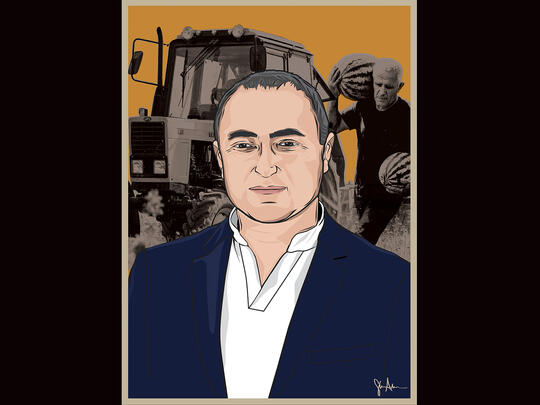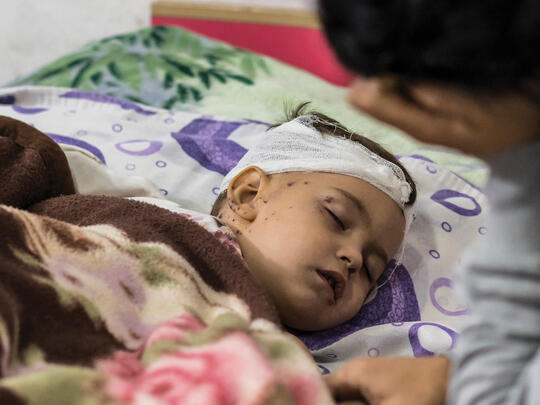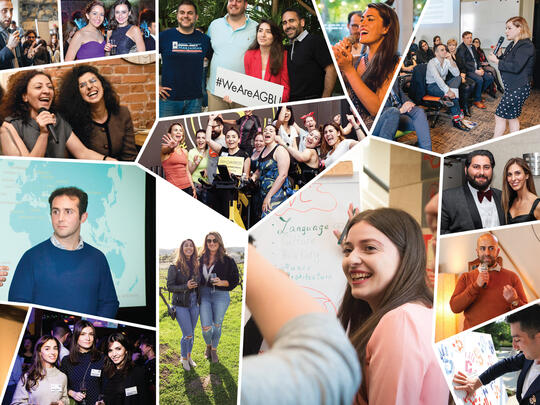After 22 years of service to at-promise Armenian-American youth residing in the county of Los Angeles, AGBU GenNext was ready to open its new after-school center at the Glendale YWCA, when the coronavirus outbreak changed all that. Weeks later the California authorities announced that all schools would remain closed through 2020. Fortunately, just like the teenagers it was created to nurture, GenNext is a work in progress that is finding its footing as an agile and responsive leader in times of crisis.
Chair of the GenNext Board Tzoler Oukayan-Sagherian, who is the dean of student affairs at Glendale Community College and an AGBU/AYA Scouts alumna, described the value of the program, especially when facing uncertainty. “Given what is going on around the world with a pandemic and the social and racial injustices, every part of our communities is affected. It is more important than ever that we create safe spaces for our youth. And while GenNext is able to adjust to the changing needs of the community, our mission stays the same: shape each new generation with proper support and guidance so our young people recognize their worth and purpose in our communities.”
Over the years, GenNext earned a reputation as a reliable, accountable and trusted source for youth struggling through that transitional stage of development that, to a large extent, charts the course of adulthood. The proof is in the recently signed Memorandum of Understanding (MOU) with the Glendale Unified School Board, heralding a new chapter in GenNext history with the launch of its own after-school center. As an overlay to the highly successful one-one-mentoring program that lies at the heart of the program mission, the after-school center was the logical next step in preparing youth for life success.
Such cooperation with the city school district will expand recruitment from Glendale’s public and private schools, thereby increasing diversity for the new AGBU GenNext after-school offering. It was about to open until the pandemic put those plans on pause. However, it has not stopped the momentum.
Since the lockdown began, Nare Avagyan, the newly-installed program lead and a former administrator at Armenia’s TUMO Center of Creative Technologies in Yerevan and Gyumri put her tech smarts to work to create a virtual after school for teens of all backgrounds, Armenian and otherwise.
After School Goes Virtual
According to Avagyan, partnering with guidance counselors and teachers from the Unified District means identifying those in the student population who could benefit most from the GenNext after-school model. The outreach is also extended to other Armenian-based organizations in the Los Angeles area. For newly arrived families in the country who are unfamiliar with support resources available to them, GenNext is a safe and welcoming access point.
In early 2020, Avagyan moved back to LA to apply the best of the TUMO after-school concept across the LA community, recognizing that the middle and high school years are a critical time in a teenager’s development. “It’s very important for young people to engage with the right people because, for many, that will determine the direction in which their lives will go,“ she notes.
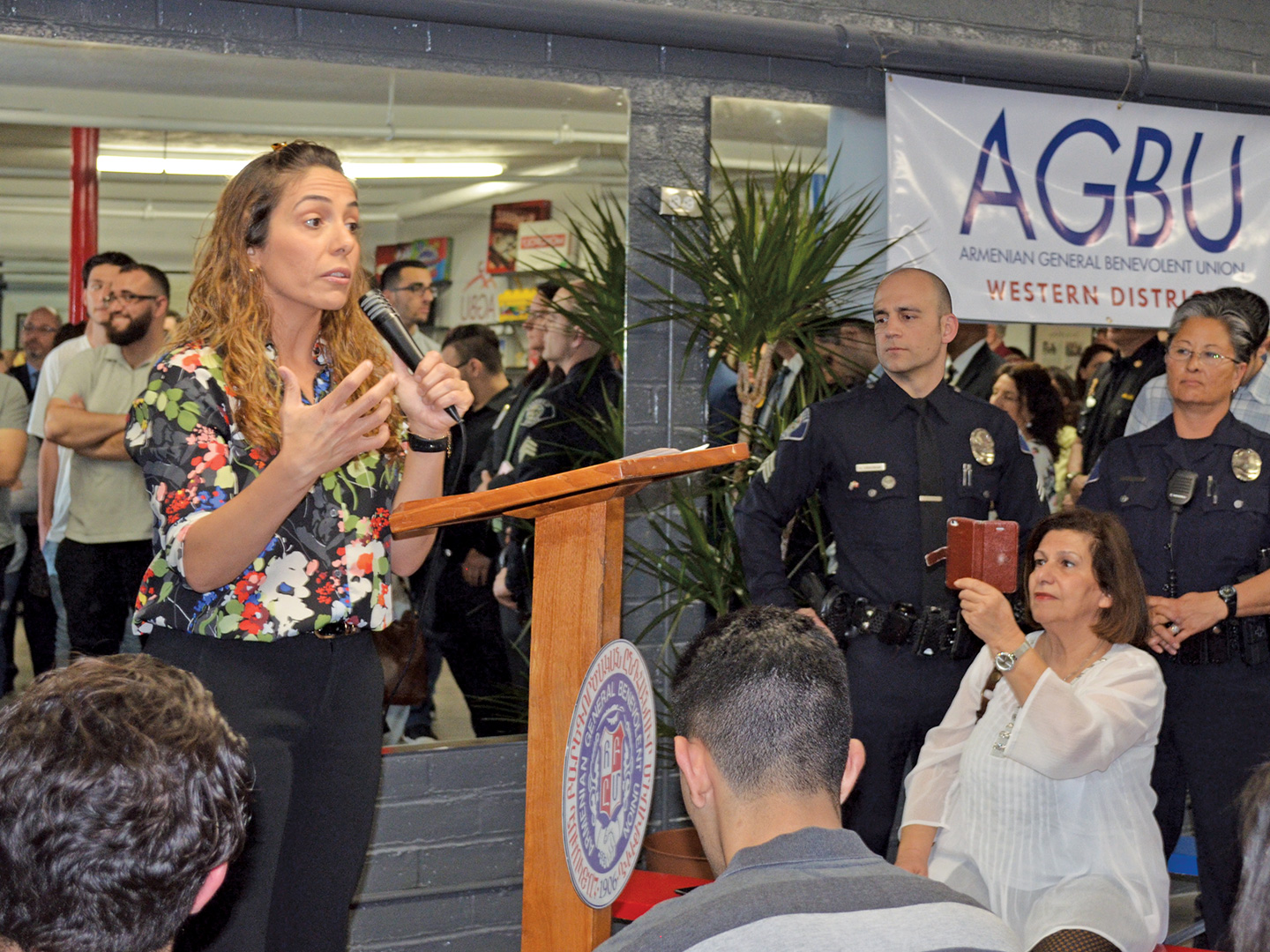
For some, the GenNext virtual after-school tutoring service was a boon to academic achievement. Focused on tutoring during the early lockdown in LA, GenNext filled a newfound gap—getting homework help. From Monday through Thursday, 25 participants were tutored in math and English, all taught the same curriculum and given the same assignments but with time left for group discussion and one-on-one help. For math, students rotated asking specific questions pertaining to their homework. “The virtual after-school center turned out to be a big help to students and parents,” Avagian proudly announced.
For others, the socio-cultural aspect fosters healthy connections and interests such as sports, the arts, games and computer hour. Also in the planning are online workshops featuring industry professionals who share their knowledge on topics ranging from cyber security and writing essays for college applications to Armenian history, language and more.
When the online after school ended in June, followed by the state’s decision to keep schools closed for the fall semester, GenNext leadership decided to resume the virtual sessions with more content, not only academic but also with entertainment options appropriate to the teen demographic.
While accomplishing all this in just weeks is challenging enough, Avagyan argues that the bar must be set even higher. “Once the virtual sessions end, we want each participant to come away saying, ‘Oh, what I did was really fun.’ We want parents to say, ‘I want my child to go back there when school reopens,’ even if it means driving them to the center. It’s a commitment to show up twice or three times a week in person. So our goal is to develop such high quality content that it makes the trip worth it.”
One enthusiastic GenNext parent Nara Petrosyan spoke about her children’s experience with both the afterschool and the mentorship program: “My son, who is in middle school, clearly benefited from virtual after school during these difficult last few months. It also helped him improve his social skills as he forged new friendships. A heavy load was taken off us parents. As for my daughter, she’s a proud GenNext mentee and very much appreciates the advice from her mentor about choosing her future career path. I am truly thankful for both these programs that are even free of charge.”
Meaningful Mentorships
It’s no secret that the years between 12 and 18 are when issues of identity, self-confidence and forming personal values and character can cause turmoil in a teen’s inner life. To leave the nest with the skills and support levers to navigate the world of college, dating, fending for oneself as a productive adult and living life as a purposeful citizen can be a minefield of doubt, temptation and rebellion.
That’s why the GenNext mentorship program, established in 1988, has proven so essential to steering youth in a positive direction. Since the beginning, the goal was to minimize the scars of youth that can cast a long shadow on one’s road to success while maximizing each youth’s innate aptitudes, talents and motivations. Yet experience shows that mentorships bring added value to any teenage experience, regardless of how focused and centered a youth may be.
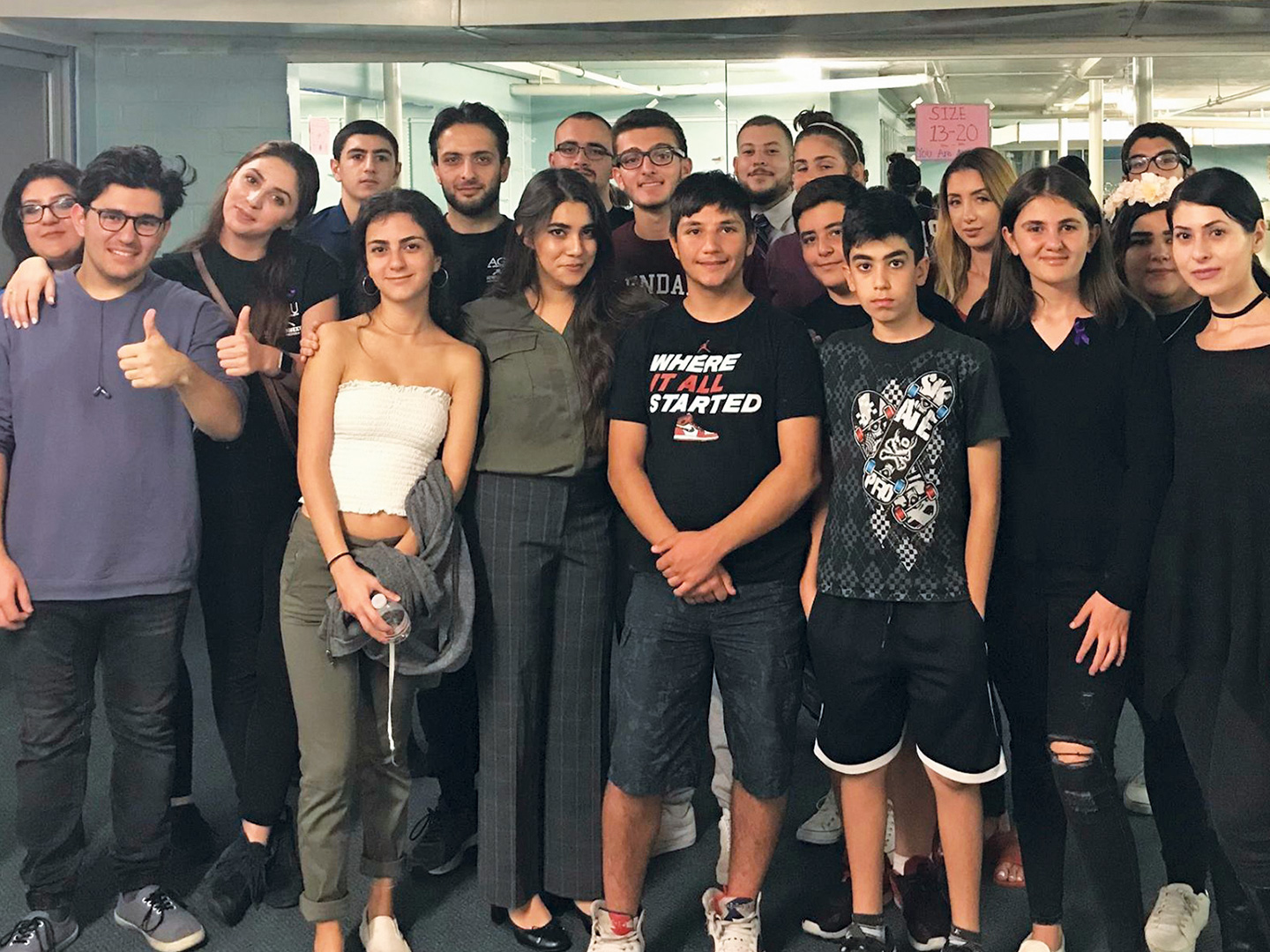
For immigrants, including first generation Armenian immigrants or second generation Americans of foreign born parents, that tug of war between adhering to one’s heritage, traditions and values and the lure of popular culture and peer pressure is also tenuous. This accounts for why mentors with Armenian backgrounds and sensibilities are key in understanding these factors and influences, whereas a non-Armenian could miss the subtle signs and symptoms of a double-identity crisis.
Delivering effective mentor-mentee outcomes was what first came to the attention of the Glendale Unified School District, giving GenNext a seat at the table when making decisions impacting the majority Armenian-American students. It also gave the GenNext brand greater exposure as a proven model within the larger community mosaic. With so much to share from the wisdom that the Armenians of California have contributed over four generations or more, positive role models abound.
Avagyan sums it up best: “The best part is when a mentee becomes a mentor for a new generation. That is the gold that GenNext is mining for to keep our precious youth healthy, confident and prepared to live their best lives.”
Go GenNext.
The GenNext Mentorship Method
The mentor-mentee relationship is a sacred bond between two individuals that, unlike a friendship, comes with set boundaries and rules of engagement. Not only is parental buy-in required but also professional supervision is key. The trick is keeping these secondary stakeholders at a safe enough distance to allow the confidential trust between a non-familial adult and teen to develop and flourish.
Avagyan describes it this way: There are things that a mentee would never talk to a parent about, even a friend. But when they connect with a mentor, who’s there to help them in any way they can to guide them, they’re going to open up to that mentor.”
She also reminds that establishing trust with a mentee is not going to happen overnight. In fact, prior to pairing mentors with mentees, there are group events in which both cohorts engage with all the participants. Then each casts a secret vote for the person they wish to work with, and, in many cases, it’s a match.
The same is true for the mentors, who are offered resources and opportunities to connect and check in with staff to pose questions or concerns. To that end, GenNext is partnering with Youth Mentoring Connection (YMC), which has been in the field for 20 years with thousands of mentors and mentees to its credit. They conduct the mentor training.
During training, a variety of possible scenarios are presented. Any issues seen as unusual must be reported not only to staff but also parents, especially if the behaviors are destructive or illegal. In turn, parents have access to discuss any issues with the mentor. To establish these important channels of communication, GenNext Family Nights take place early on in the program, giving parents the chance to engage with the mentor and ask questions while getting to know the other participating families as well.
Over the course of the program, mentor debriefs are conducted regularly with GenNext leadership to discuss impressions and observations, assures Avagyan. “If we sense there’s something to be concerned about, we reach out to the parent. The mentees know that this is a program policy. It’s not that ‘your mentor doesn’t like you.’”
At this time, the mentoring takes place remotely by phone, email or virtual platform. While Avagyan agrees that it doesn’t take the place of going out for coffee, relating in person and connecting, it has not really been a major impediment. “We’re talking about teens. They’re used to connecting digitally.”
The Word on GenNext
Lusineh Ghrapetian, PhD, BCBA-D
Mentor
“I can’t wait for my weekly meetings with my mentee, which are engaging, bring us into the present moment, and emphasize the importance of building meaningful relationships. In these pandemic times, my mentee and I have gotten creative about how to spend quality time together remotely and the virtual group activities are both upbeat and purposeful.”
Anna Baghdasaryan, 16
Mentee
“I love talking with my mentor on a weekly basis, learning new things and getting to know each other. We talk, play games, and enjoy each other’s company. She helps me come up with solutions any time I struggle with anything. I share my thoughts with her and she listens patiently and helps me find clarity.”
Aleks Baghdasaryan, 14
After-school student and mentee
“My family moved to the US nine months ago. At first, language was a barrier for me. The GenNext after-school program helped me make new friends and improve my English skills. I am very thankful for their help and support. After completing the after school program, I joined the Mentorship program. I look forward to working with my mentor, who also moved to the US from Armenia. We have many things in common.”
Mihran Harutyunyan, 12
Afterschool student
“The GenNext virtual after-school program has not only helped me make new friends, but also keep up with my school work when our schools were closed. The English tutoring sessions helped me enhance my essay writing and communication skills, whereas math helped me with my daily school assignments. I look forward to going to the center when it opens again.”





